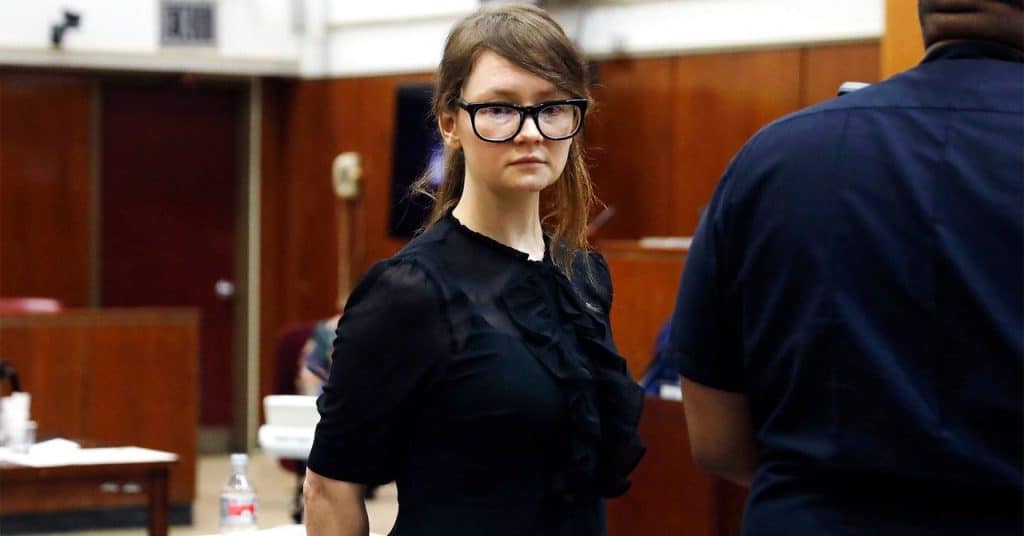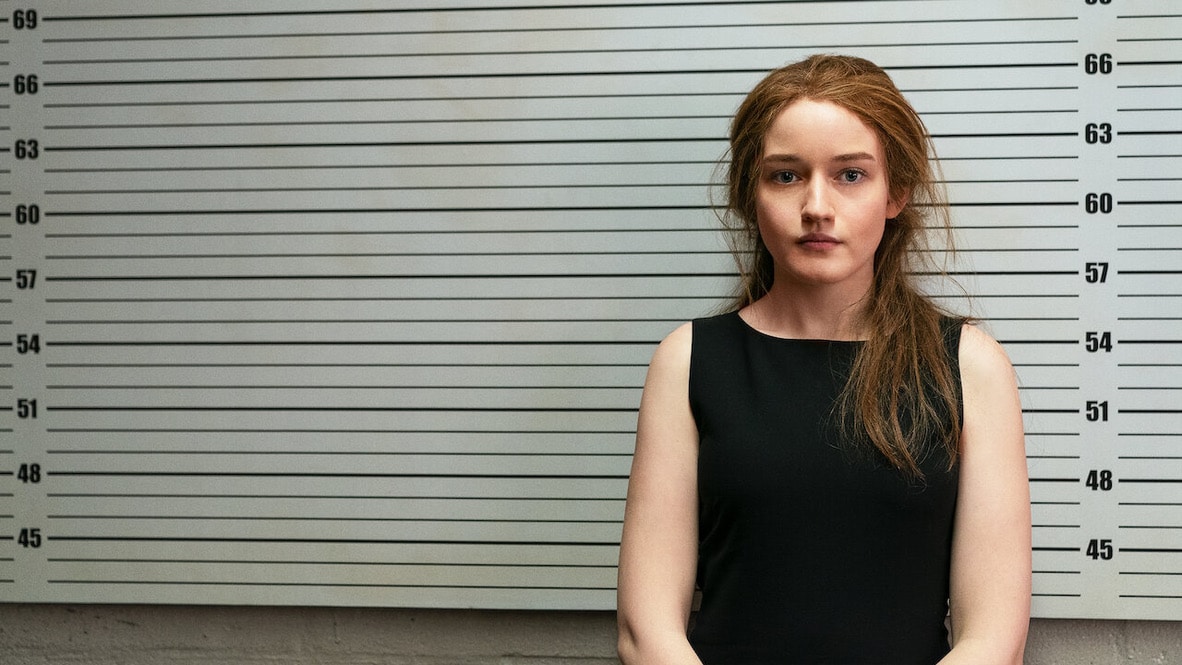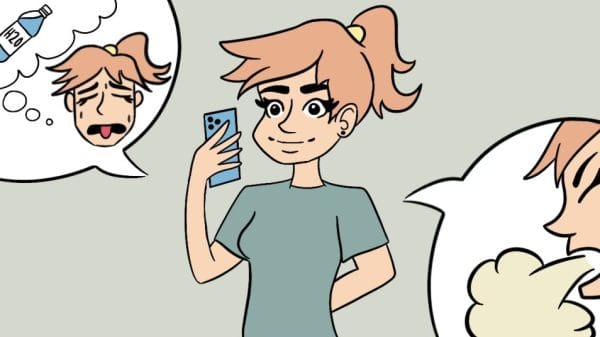Lately, scam artists have been taking over our TV screens.
Two of Netflix’s top trending series, Inventing Anna and The Tinder Swindler retell the true stories of two convicted scammers. The Tinder Swindler recounts the story of Simon Leviev (Shimon Hayut), the pretend diamond mogul who conned $10 million off of women he met on Tinder. Meanwhile, Inventing Anna tells the story of Anna Delvey (real name Anna Sorokin), a “wannabe socialite” who scammed millions of dollars from banks and investors by pretending to be a fake German heiress.
Last week, Hulu premiered The Dropout, a drama series starring Amanda Seyfried as the twenty-something-year-old Elizabeth Holmes. Best known for her low voice and black polo necks, Holmes convinced high-profile figures to invest in her start-up, claiming she had invented an innovative blood-testing machine. As the story goes, Holmes’ machine was a fake, resulting in her getting convicted on three counts of fraud and one for conspiring to defraud investors. She is currently out on bail and expects her sentence on September 26th.
With what seems like another scam artist taking over our TV screens, Hollywood is clearly obsessed. Yet, what is it about these people that makes them so captivating? Why is Hollywood so obsessed and what does this obsession say about ourselves?
Entertainment, Baby!
At face value, these stories are entertaining. They feature larger-than-life characters with expensive lifestyles. From Delvey buying designer clothes to Leviev traveling on private airplanes, one can’t help but awe over their lives. Sure, they’re con artists, yet their lives are admittedly envious. And in a period where 1 in 3 Americans believe money can buy happiness and the financial wealth gap continues to increase, these stories offer the perfect escape from our financial stresses.

Meanwhile, there’s something enticing about seeing a person break the rules. Just when we think the scammer is about to get caught, they get brazen; they make audacious decisions and they almost always get away with them. They lie and they cheat and get rewarded.
As people, we can sometimes feel trapped by our lives or our morals. Being good takes effort while being bad is easy. So, when we watch scammers like Anna Delvey or Elizabeth Holmes cheat and reap the rewards, their actions feed our base desires– the primitive urges we so often try to suppress. We vicariously live through these characters as a means to test our impulses and ease our frustrations. These characters act on their crimes and we enjoy their actions because we get to watch them without bearing the consequences.
Villain…
From a different angle, series like these provide us with the perfect folk devil, a punching bag for us to rule out and kick. To put it simply, they represent some of the obvious evils that make up an otherwise complicated system.
For example, it can be hard to put into words why a few start-up businesses making copious amounts of money is necessarily a bad thing. Then, Elizabeth Holmes comes along with her $9 billion company and her fake technology and we finally get a clearer picture.
As for Anna Sorokin, in a period consumed by hype and social media, her rise to the top proves how appearances matter more than success itself.
As Rebecca Henderson’s character on Inventing Anna puts it:
“She is everything that is wrong with America right now, and she’s not even American.”
According to this perspective, our fascination stems not so much from entertainment but moral catharsis. Today, people are afraid to assert their morals as other people’s beliefs do not always coincide with their own. For example, drinking milk can be considered a bad thing by vegans; however, for non-vegans, drinking milk is allowed. Neither abides by the same moral code, alas their judgments are different.

Enter the scammers: these conniving individuals who are so undeniably and preposterously selfish, almost everyone can agree their actions were wrong. Ultimately, expressing one’s disdain over these individuals is a pretty low-risk activity and having people with opposing beliefs agree with one’s own can be pretty alleviating.
…Or Hero?
On the other hand, what if our fascination towards these characters isn’t that we perceive them as devils but as heroes?
Consider the “American Dream,” the idea that in a free market economy anyone, regardless of their background or race, can achieve wealth. As enticing as this idea is, the issue stands that many people who pursue this mission don’t actually become billionaires. Then the scammers come along.
Before becoming New York’s fake German Heiress, Sorokin came from a working-class family; she was a Russian immigrant whose father worked as a lorry driver. As for Elizabeth Holmes, the Stanford drop-out did come from a wealthier background; however, her stint at Theranos still substantially elevated her wealth and popularity.
When interpreting it from this lens, these scammers did the impossible and achieved what was often seen as an impossible quest–albeit by cheating and hurting others along the way. They pursued their own self-interests and elevated themselves from rags to fake riches, and in a perverse way, we admire these characters because of their audaciousness; they beat the system at its own game and almost got away with it.
Con-sequences
Yet, as much as we love talking about scam artists and giving them the Hollywood treatment, it is important to understand that these scammers did hurt real people.
Consider Elizabeth Holmes. In addition to defrauding several investors, her company knowingly offered inaccurate blood exams which risked the health and lives of thousands of civilians.
Brittany Gould, a patient who testified during Elizabeth Holmes’ trial, said that a Theranos blood test suggested she was experiencing a miscarriage when, in reality, she was carrying a healthy baby. As a consequence, she changed her natal medications, which could have harmed the fetus. Fortunately, Gould eventually gave birth to a healthy child.
Erin Tompkins, another woman who testified, said she obtained a false positive HIV antibody result after taking a Theranos test at an Arizona Walgreens. “I was extremely emotional at the moment,” Tompkins said to the jury.
In total, according to Fortune, more than 10% of Theranos’ test results in Arizona were proven to be inaccurate, risking the lives of 176,000 citizens. Theranos’ inaccurate test results alarmed several patients, misdiagnosed others, and compelled people to adjust their medications.

As for Simon Leviev, he defrauded various women off of millions, verbally threatened them, and emotionally traumatized one of his victims, causing her to check herself into a psychiatric facility during a brief period. Today, Cecilie Fjellhøy, Pernilla Sjoholm, and Ayleen Charlotte, three of Leviev’s victims, are still paying off their debts. Last month, the three created a GoFundMe page with hopes to raise £600,000 ($811,206). So far they’ve raised more than £170,000 ($227,400).
Finally, there’s Anna Sorokin. Amongst her many crimes, her most infamous was stealing more than $60,000 from her ex-friend Rachel William’s credit card during an “all-expenses-paid” trip to Marrakesh. After the ordeal, Williams published her account of the story in Vanity Fair in 2018 and repaid her debt after signing a book deal with Simon and Shuster and a film deal with HBO.
On the question of her book and her reasons for telling the story, Williams said it was to help her understand what had happened.
“This is the hardest thing I’ve gone through—the betrayal as much as the money. Having been betrayed by someone I trusted—and to have been betrayed in a huge way. Her entire identity had been a complete sham. That really sends you into a ricochet of memories, looking back trying to look for all the signs you missed. That’s why I wrote a book—I was drowning in rumination and trying to process what had happened.”
Vanity Fair
Con-flicted
Following the Netflix series, Williams criticized the show for portraying Sorokin heroically—as a savvy and inspiring hustler, and not as a convicted felon.
“I think promoting this whole narrative and celebrating a sociopathic, narcissistic, proven criminal is wrong…Having had a front-row seat to [the Anna circus] for far too long, I’ve studied the way a con works more than anybody needs to. You watch the spectacle, but you’re not paying attention to what’s being marketed.”
Vanity Fair
According to William, as entertaining as Hollywood makes these characters out to be, the real fact is their crimes were just that, crimes. Glamorizing the “genius” or “savvy” of a con-artist diminishes the brevity of their actions, and at worst justifies their actions.
In the meantime, these scammers’ notoriety has only strengthened their popularity. Following Inventing Anna, Sorokin has amassed an extensive fan base on social media. Meanwhile, Leviev has hired his talent agent and is reportedly working on his tv show. Holmes is currently out on bail and even amassed a cult following.
So, where do we go from here? Maybe these stories are entertaining and maybe the answer is complicated, but one thing we can surely take from all this is to be more critical. Don’t let a con artist take advantage of you, and don’t let your TV con you.














